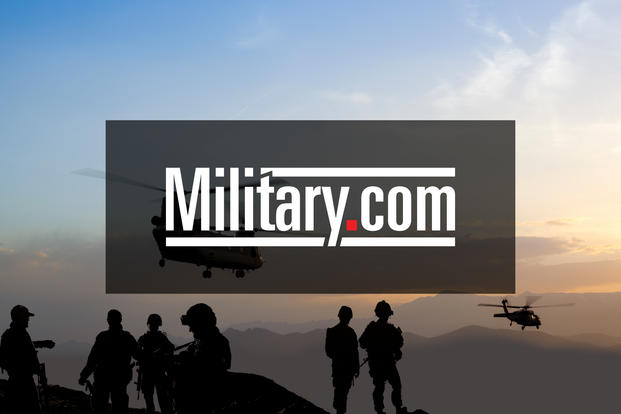President Donald Trump said Tuesday that the Secret Service convinced him to skip a planned Nov. 10 visit to a cemetery about an hour's drive from Paris to honor the U.S. fallen of World War I.
In a series of tweets on his much-criticized WWI centennial visit to France, Trump defended himself against critics who said he showed a lack of respect to the fallen by failing to make the trip to the cemetery.
"By the way, when the helicopter couldn't fly to the first cemetery in France because of almost zero visibility I suggested driving," Trump tweeted. "Secret Service said NO, too far from airport & big Paris shutdown" for centennial events attended by world leaders.
However, French President Emmanuel Macron, German Chancellor Angela Merkel, Canadian Prime Minister Justin Trudeau and other world leaders appeared to have no problems visiting sites outside Paris on Saturday.
Trump also noted that he went on Sunday to the Suresnes American Cemetery, about five miles west of Paris, in a driving rain for a visit that he said was mostly ignored by the media.
"Speech next day at American Cemetary [sic] in pouring rain! Little reported-Fake News!" Trump tweeted.
In a posting on its website, the American Battle Monuments Commission, which oversees the Suresnes cemetery, said that Trump came Sunday "to participate in a ceremony marking the end of the Great War."
"Here on the revered grounds of Suresnes American Cemetery lie more than 1,500 U.S. service members who made the ultimate sacrifice in the first world war," Trump said, in his remarks at the cemetery, according to the American Battle Monuments Commission. "We are gathered together at this hallowed resting place to pay tribute to the brave Americans who gave their last breath in that mighty struggle."
In Trump's place Saturday, Joint Chiefs Chairman Gen. Joseph Dunford and his close Marine friend, White House Chief of Staff and retired four-star general John Kelly, went to the Aisne-Marne American Cemetery about 50 miles north of Paris.
The cemetery is the final resting place for 2,289 "doughboys," many of whom fell in the battle of Belleau Wood. As is traditional for Marines visiting the site, Dunford drank from what is known as the "Devil Dog" fountain near the cemetery.
The Germans who fought the Marines in Belleau Wood called them "Teufel Hunden," or "Devil Dogs," for their tenacity.
In a possible dig at Trump for canceling the Saturday visit to the cemetery, the French Army posted a tweet on its official site noting its own troops' presence at the event.
"There is rain, but it does not matter. We remain motivated," the French Army's tweet said.
In his tweets Tuesday, Trump lambasted France's defense against Germany in two world wars, and suggested the French remained ungrateful for help received from the U.S. He also resumed his criticism of NATO allies for failing to pay their fair share for the alliance.
Trump said that Macron has called for a European army "to protect Europe against the U.S., China and Russia. But it was Germany in World Wars One & Two - How did that work out for France? They were starting to learn German in Paris before the U.S. came along. Pay for NATO or not!"
"The problem is that Emmanuel suffers from a very low Approval Rating in France, 26%, and an unemployment rate of almost 10%," Trump continued in the thread. "He was just trying to get onto another subject. By the way, there is no country more Nationalist than France, very proud people-and rightfully so."
The last reference was to Macron's forceful speech at the Arc de Triomphe Sunday to mark the 100th anniversary of the armistice that ended World War I.
Macron called nationalism, which Trump has extolled, a "betrayal of patriotism" and warned against nationalist sentiments worldwide that posed the danger of "old demons coming back to wreak chaos and death."
In comments on the centennial on his aircraft returning to the U.S., Dunford said the presence of about 80 heads of state at the centennial events in Paris was inspirational and underlined the value of alliances as outlined in the 2018 U.S. National Defense Strategy (NDS) promoted by Defense Secretary Jim Mattis.
"It was very powerful to see them all there," Dunford said, "and frankly, I think in many ways making a commitment never to repeat the mistakes that led us into World War I."
In a news release posted on the Defense Department's website, Dunford noted that World War I was the first time the U.S. fought alongside allies overseas.
"If you look back at the 20th century -- every conflict we were involved in -- we participated as part of a coalition, participated with allies and partners on our side: World War I, World War II, the Korean War, Vietnam War, and the main skirmishes that we had in between," Dunford said. "The NDS recognizes that we certainly don't anticipate being on any future battlefield without allies and partners."
-- Richard Sisk can be reached at richard.sisk@military.com.














